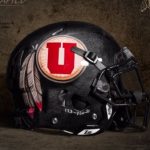California’s law to allow players to pick up sponsorships, a few questions.
Welcome to Ute Hub › Forums › Utah Utes Sports › Football › California’s law to allow players to pick up sponsorships, a few questions.
- This topic has 9 replies, 9 voices, and was last updated 5 years, 6 months ago by
 UTE98.
UTE98.
-
AuthorPosts
-
-
 UTE98Participant
UTE98ParticipantSo there are several possible unintended consequences.
First the NCAA is going to fight this tooth and nail. So we’ll see how that goes.
Second, what happens if say a different states legislature makes it illegal for an amateur athlete who is getting paid to play in their state. So let’s say Oregon, Washington, Arizona, Utah all pass laws, what then? This seems similar to the laws in Canada that tax MLB/NBA players who play there based on Canadian tax laws? If they are “earning” their money in another state what are the ramifications?
I’d think athletes in other states might try to make a legal argument trying to level the playing field, or perhaps it is done by the universities.
This whole thing may come down to the commerce clause, meaning the states choose how to treat these “paid athletes.” But for playing against Oregon, Washington, Utah these players would not be paid. I’m not a lawyer, but I am asking for opinions of others. If that is legally totally BS, call me on it. I just threw it out there.
Third, so if the schools themselves can’t pay the students these endorsement/sponsorships, how much regulation or say does the school have? Can UCLA, SDSU, Cal help broker these deals? Or would that be an NCAA violation? I’m leaning toward the latter, but we all know it’s a Pandora’s box. Much cover up will be done by teams/schools bending the rules and recruiting will include an off the record, we know some good sponsors who are interested in you.
Fourth, OOC teams/Olympic sports. Will Notre Dame, MWC teams schedule the Pac 12 California teams? And will this have a different impact on Stanford, Cal, UCLA and USC? Private vs. Public? This should be interesting and I’m not sure will have an overall positive impact on college sports. Why wouldn’t a gymnast, or other Olympic athlete go to a California school and get paid rather than at Utah. This will be about more than just football/basketball/baseball. Does Colorado’s cross country program suffer? Utah’s gymastics? OSU’s baseball? Washington’s softball?
What do you think?
-
 Itacoatiara22Participant
Itacoatiara22ParticipantGood questions. I don’t have any of the answers to any of them, unfortunately.
I have my own thoughts on it, with a bit of a unique perspective of having played college athletics on a full scholarship. 90% of other college athletes are like me, in that, we were pumped to get a scholarship to study and play a sport, but never would have made a dollar off of our likeness because we weren’t good enough. I knew there was not going to be a professional sports avenue for me after college. My scholarship benefited me by allowing me to go to and finish school without any debt and kick-start my future (and my family’s).
I think most college athletes fall into this boat. In a sense, they are already getting paid. I sure felt like I was. Free room and board, meals, travel and school. That’s a lot of money. I honestly do not know where I sit on this issue, but nobody has been able to convince me either way yet. This new law will definitely benefit the cream of the crop in college athletics if allowed by the NCAA.
-
 Dwight89Participant
Dwight89ParticipantIt’s going to be a big cluster-frank, that’s for sure.
The other issue no one seems to talk about is how will this affect team chemistry? Most schools only have a few “stars” that will merit serious endorsement dough. So how will the offensive line players feel when the star QB is rolling up in his mercedes to practice everyday.
Also, once endorsements become allowed, boosters are going to go nuts. Those schools that have the deepest booster pockets will win, even more so than now, imo.
-
 EagleMountainUteParticipant
EagleMountainUteParticipantThis will eventually end college athletics as we know it. The ncaa doesn’t seem to care about Sean Miller so maybe they are on board with it.
I think with the CTE stuff, new TV deals, paying players, and other factors that it will eventually just move to a developmental league for the NBA and NFL. -
 DataUteParticipant
DataUteParticipantDefinitely forces NCAA to do something. Other states might follow. The worry isn’t the few that can make money off their likeness (even if it’s youtube channel, etc.) but that boosters will create ‘endorsements’ for lower level players because they can.
-
 UtesbyfiveParticipant
UtesbyfiveParticipantThe question is, what Title IX implications does it have?
-
 Ute BcParticipant
Ute BcParticipantIt’s going to be interesting how the NCAA responds. They may say, if you want sponsorships go to the NFL.
-
bombastic
ParticipantI am not sure what does this even mean. Under the current system you can’t get paid because the school is subject to NCAA regulation in which case the school might get penalized. If you take money, to my understanding, you are not breaking the law by getting compensated but rather you are breaking the NCAA rules. The extent that this will have any impact will depend on Californian schools and how they will regulate the athletic programs. I think in general the schools will rather comply with NCAA… But will see
-
 UtMtBikerParticipant
UtMtBikerParticipantTons of great questions raised in this thread. I have been following this for about a year now and have a pretty good understanding of it and can answer some of these questions. Here’s what I know.
Other State implications: Other states are going to pass similar laws. Florida is next. A handful of other states will have it up for vote next year. What if other states pass laws making it illegal for amature athletes to get paid to play in their state? Well, that sounds unconstituitional so I don’t think that will be happening. You would essentially be passing a law that says you can’t have a job and play a sport. What would be the states motivation for that?
It’s important to remember exactly what this law is. This is not a law that allows players to be paid for playing a sport by a University. It has nothing to do with pay for play. These are sponsorships or other jobs that a student athlete can have. It says that the school can’t punish a student for profiting from his likeness. So, if the ncaa found a violation, the school couldn’t remove the students scholorship or punish him/her in anyway. This puts the fight on the school with the NCAA. Or, since many schools are State schools, the State vs the NCAA.
It’s likely that other Universities will pressure states to pass similar laws to even the playing field.
How much regulation or say does a school have in sponsorship of athletes? In the case of the California law. Zero.
States really don’t have any decisions to make on how to treat these “paid athletes”. They will be generating income and paying taxes on the income. They will pay taxes on the income generated in the states where they reside. Since they aren’t getting paid to play games, they don’t have to pay taxes in those states where they play. For example, Lebron James doens’t pay taxes on his endorsment money in ever state with an NBA team even though he plays games there.
This law doesn’t take effect for 3 years and that was by design. They are giving all other states and the NCAA time to find a solution that works for everyone and levels the playing field.
Basically, this is a game of chicken. California is telling the NCAA we’re ready to challenge any NCAA sactions that you drop on our schools in federal courts based on existing labor laws. We’re confident that other states will get on board and you will be fighting a losing battle and lose a lot of money. In fact, we’re confident in the possibility that the power 5 football teams will just say goodbye to the NCAA and do our own thing. 85% of your revenue would be out the door at that point.
They are saying you tell us why we need the NCAA to regulate our college sports in our states.
Not sure what why this would effect title IX in anyway. It’s a law that provides equal benefit for all.
I think this will have a similar effect that the CTE ruling had in the NFL. 10 years from now, college football will be unrecognizable from the game it is today. Like the NFL, which in my opion is nearly unwatchable now, college ball will be a different game. Better or worse, who knows but it will be totally different.
-
 UTE98Participant
UTE98Participant@UtMtBiker it is very apparent you’ve done your homework. Thanks for all your insight.
A few points I didn’t really think through:’
1. Players aren’t being paid to play, but for their likeness, image, etc. So not much other states could do tax wise.
2. I think the definition of amateur athlete is going to evolve. Could the argument be made the individual is only being paid due to their athletic endeavors? I mean they certainly aren’t the Kardashians. So does getting paid due to athletics remove your amateur status? Don’t know, but it will be argued.
3. Sadly this will probably lead to the rich getting richer and the folding of many athletic programs. So in the end this “may” hurt the smaller school athletes as endorsement deals will further separate the haves from the have nots. In business I’m totally in favor of being able to capitalize on your skillset. However it may be better for the NCAA and some of the larger beneficiaries to part ways. The NCAA will likely crumble. I think the schools without the T. Boone Pickens, Phil Knights, etc. are going to really suffer. Just hope whatever happens Utah sports don’t end up the losers. Sadly I think BYU will actually thrive in this environment on the backs of the Multi-level Marketing gurus. Though I’m sure if the players remain in the NCAA there will have to be some sort of checks and balances. Paying an athlete several million dollars to pimp your product… may need to be in line with industry norms. Will they make more than radio announcers who pimp products on their own time?
Thanks again for your input.
-
-
-
AuthorPosts
- You must be logged in to reply to this topic.
